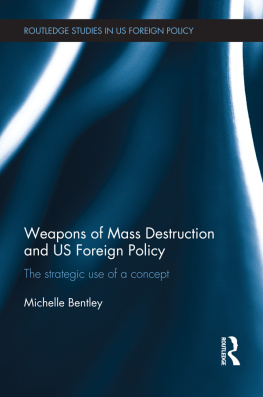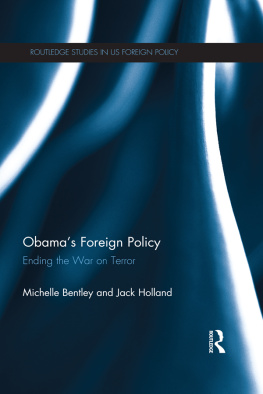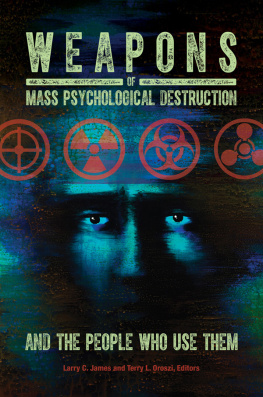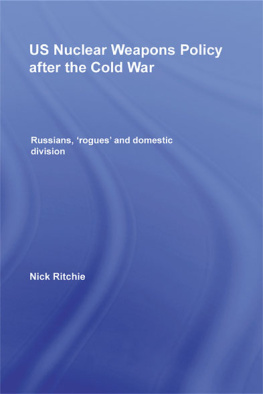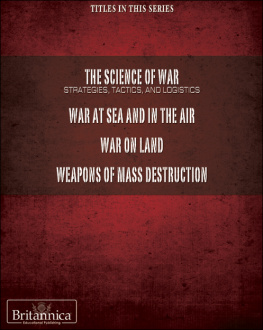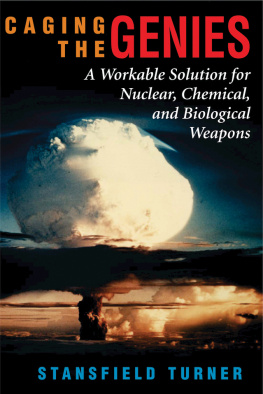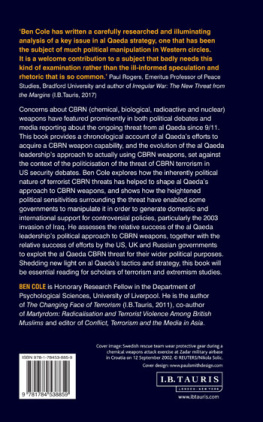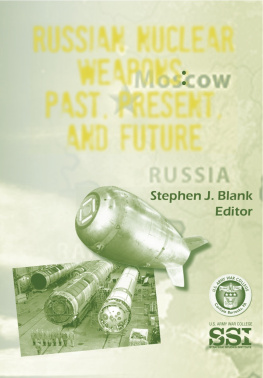Weapons of Mass Destruction and US Foreign Policy
This book examines the use of concepts specifically weapons of mass destruction (WMD) in US foreign policy discourse.
Current analysis of WMD definition has made headway in identifying the repercussions that the conceptual conflation of such diverse weapons typically understood as a reference to nuclear, biological and chemical weapons has for international security. While the concept assumes these weapons are equal, the vast disparity between them, and their disparity from the conventional weapons from which they are supposedly distinct, means that this approach is seen as unreflective of reality, causing miscalculations in security policy. Not least, this has highlighted the fact that the issue of WMD definition is a priority concern where this has direct implications for strategy.
In contrast, Weapons of Mass Destruction and US Foreign Polic argues that this approach does not accurately portray conceptual meaning, particularly where it overlooks how political language is constructed. In demonstrating this, the book presents a conceptual history of WMD detailing how this has been defined and used since its emergence into political discourse c.1945. Specifically, it argues that definition is an inherently strategic act; policymakers have deliberately included (or excluded) certain weapons and threats from the classification in order to shape foreign policy dialogues. As such, understanding the WMD concept is not a search for a single interpretation, but an analysis that seeks to comprehend what the concept means at any given time, especially where this relates to the political circumstances of its use. By identifying a variety of ways in which WMD has been defined, the book constructs a dynamic view of conceptual meaning that recognises and, more importantly, explains the inherent diversity in interpretation as the consequence of epistemic and institutional context and the strategic response of policymakers.
This book will be of much interest to students of weapons of mass destruction, US foreign and security policy, security studies, political narratives and IR.
Michelle Bentley is Lecturer in International Relations at Royal Holloway, University of London, UK.
Routledge studies in US foreign policy
Edited by Inderjeet Parmar
City University
and
John Dumbrell
University of Durham
This new series sets out to publish high quality works by leading and emerging scholars critically engaging with United States Foreign Policy. The series welcomes a variety of approaches to the subject and draws on scholarship from international relations, security studies, international political economy, foreign policy analysis and contemporary international history.
Subjects covered include the role of administrations and institutions, the media, think tanks, ideologues and intellectuals, elites, transnational corporations, public opinion, and pressure groups in shaping foreign policy, US relations with individual nations, with global regions and global institutions and Americas evolving strategic and military policies.
The series aims to provide a range of books from individual research monographs and edited collections to textbooks and supplemental reading for scholars, researchers, policy analysts and students.
United States Foreign Policy and National Identity in the 21st Century
Edited by Kenneth Christie
New Directions in US Foreign Policy
Edited by Inderjeet Parmar, Linda B. Miller and Mark Ledwidge
Americas Special Relationships
Foreign and domestic aspects of the politics of alliance
Edited by John Dumbrell and Axel R. Schfer
US Foreign Policy in Context
National ideology from the founders to the Bush doctrine
Adam Quinn
The United States and NATO since 9/11
The transatlantic alliance renewed
Ellen Hallams
Soft Power and US Foreign Policy
Theoretical, historical and contemporary perspectives
Edited by Inderjeet Parmar and Michael Cox
The US Public and American Foreign Policy
Edited by Andrew Johnstone and Helen Laville
American Foreign Policy and Postwar Reconstruction
Comparing Japan and Iraq
Jeff Bridoux
Neoconservatism and American Foreign Policy
A critical analysis
Danny Cooper
US Policy Towards Cuba
Since the Cold War
Jessica F. Gibbs
Constructing US Foreign Policy
The curious case of Cuba
David Bernell
Race and US Foreign Policy
The African-American foreign affairs network
Mark Ledwidge
Gender Ideologies and Military Labor Markets in the US
Saskia Stachowitsch
Prevention, Pre-Emption and the Nuclear Option
From Bush to Obama
Aiden Warren
Corporate Power and Globalization in US Foreign Policy
Edited by Ronald W. Cox
West Africa and the US War on Terror
Edited by George Klay Kieh and Kelechi Kalu
Constructing Americas Freedom Agenda for the Middle East
Oz Hassan
The Origins of the US War on Terror
Lebanon, Libya and American intervention in the Middle East
Mattia Toaldo
US Foreign Policy and the Rogue State Doctrine
Alex Miles
US Foreign Policy and Democracy Promotion
From Theodore Roosevelt to Barack Obama
Edited by Michael Cox, Timothy J. Lynch and Nicolas Bouchet
Local Interests and American Foreign Policy
Why international interventions fail
Karl Sandstrom
The Obama Administrations Nuclear Weapon Strategy
The promises of Prague
Aiden James Warren
Obamas Foreign Policy
Ending the War on Terror
Michelle Bentley and Jack Holland
United StatesAfrica Security Relations
Terrorism, regional security and national interests
Edited by Kelechi A. Kalu and George klay Kieh, Jr.
The United States, Iraq and the Kurds
Mohammed Shareef
Weapons of Mass Destruction and US Foreign Policy
The strategic use of a concept
Michelle Bentley
First published 2014
by Routledge
2 Park Square, Milton Park, Abingdon, Oxon, OX14 4RN
and by Routledge
711 Third Avenue, New York, NY 10017
Routledge is an imprint of the Taylor & Francis Group, an informa business
2014 Michelle Bentley
The right of Michelle Bentley to be identified as author of this work has
been asserted by her in accordance with sections 77 and 78 of the
Copyright, Designs and Patents Act 1988.
All rights reserved. No part of this book may be reprinted or reproduced or
utilised in any form or by any electronic, mechanical, or other means, now
known or hereafter invented, including photocopying and recording, or in
any information storage or retrieval system, without permission in writing
from the publishers.
Trademark notice: Product or corporate names may be trademarks or
registered trademarks, and are used only for identification and explanation
without intent to infringe.
British Library Cataloguing in Publication Data

